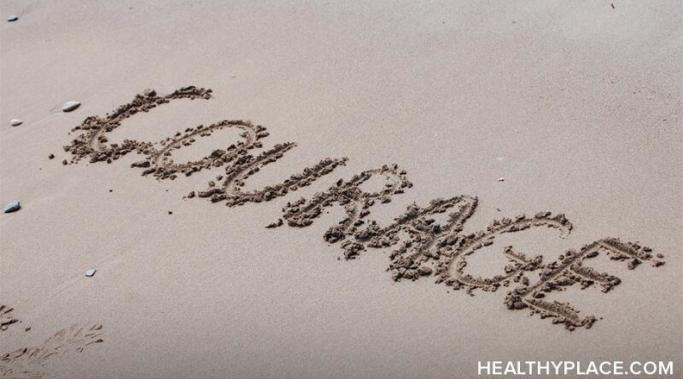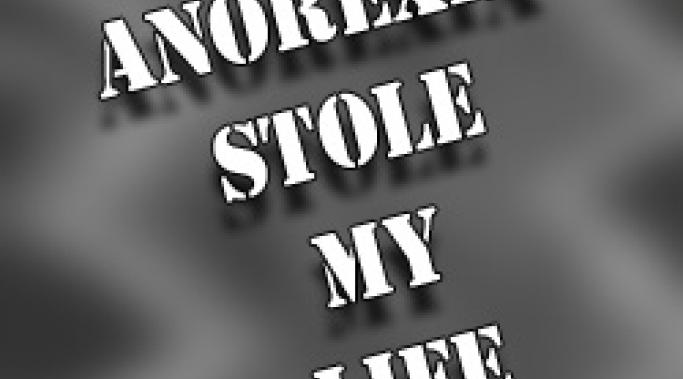I struggle with anorexia even now because eating disorders are complex and deadly illnesses. They manifest differently in each individual. For me, anorexia was not about being thin. And yet it was. That is the paradox of anorexia. I was addicted to starving, driven to be thin. I could never be thin enough, and it took years to break the chains of those thoughts.
But have I completely broken free?
Anxiety and Eating Disorders
The glare of the dressing room's lighting was unforgiving and pointed out every flaw — real and imaginary — on my body. My thighs were too wide, my stomach too round, and my overall body too short and squat. I didn't have the flawless, smooth and stubble-free underarms and legs of a magazine model. I wanted it to magically become wintertime again so I could hide my body under leggings, loose jeans, and oversized sweaters.
I kept telling myself that the sizes didn't matter, that these labels were an arbitrary measurement most likely chosen with little thought by some clothing manufacturer in China or Taiwan.
But part of my mind wasn't buying it. As I stood contemplating the clothes and the various sizes surrounding me, I felt a little dizzy and my first inclination was to run as fast as I could from the dressing room.
My therapist said to me today, "This is your recovery."
Each person is unique, and that includes people with eating disorders. There may be a checklist of symptoms, but how an eating disorder manifests itself in each person is different. It is logical that each person's recovery process from an eating disorder also would be unique.
Then why do I find I compare myself to others in recovery and often feel I come up lacking?
For months, I have felt consumed by anxiety and depression. I would sit down to write something, only to feel that the blank screen was taunting me. I would attempt to read something for graduate school, but could only manage to read a few sentences until my mind wandered off into nothingness. At its worse, I would pace the house and twist my fingers into knots, trying to will away the anxiety and do something, anything, useful.
Today it hit me — anorexia nervosa has stolen key parts of my life and now I must fight to reclaim myself.
I am very grateful to hear that many people have been asking about me and wondering about the return of "Surviving ED." I have taken this time off to take care of myself during my ongoing recovery from anorexia. I didn't have a relapse and I am still at my healthy weight. However, I needed to take some time to care for myself because of some ongoing issues in my personal life. I have been struggling with a great deal of anxiety and depression because of these issues and felt it was best to take some time off from writing.
Developing anorexia nervosa in my early forties still feels a bit surreal. As I begin to recover and regain health, I am looking for answers that might not ever be found. Why would a woman with no previous history of any eating disorder suddenly fall into the hole of anorexia starting at the age of 41?
Like Alice in Wonderland, I have been moving through the strange world of anorexia perplexed by my very presence here. The questions continue to hammer at my brain.
I reached my healthy goal weight weeks ago. I continue to eat well and maintain my weight. I am feeling more alive than I have in years, and I would like to forget I ever had anorexia nervosa and move on to real life.
It isn't that easy. Now I need to discover why I developed an eating disorder at the age of 42 and resisted recovery for years until I almost lost everything, including my life.
The road to eating disorder recovery has been a long and difficult journey for me. I often have felt lost in the fog of anorexia, unable to relate to my husband or other people. I have struggled, at times, to even think when I was in my worst restrictive periods. Often, I would wake up and wish I had died in my sleep. I was that tired of fighting anorexia.
Today, I feel triumphant. I reached my healthy weight this week, and my doctor says I am ready to move onto the next step of recovery: peeling off the layers of anorexia and discovering my true self.
My husband, David, left me in August. Because of my anorexia. He couldn't handle it, after more than three years of dealing with a wife who seemed hell-bent on dying. This past spring, I spent six weeks in a partial hospitalization program that did very little for me but crush what little self-esteem I had left. I spent the summer depressed and anxious, mainly about the size of my body.
I immediately began restricting and purging (through laxative abuse) and soon lost all the weight I had gained while in the program. David soon lost all hope I would recover from anorexia. I had forgotten — again — that my eating disorder doesn't just impact me, but also my husband and loved ones.
As I mentioned in an earlier blog post, for many, anorexia and anxiety go hand-in-hand. Anxiety can contribute to developing anorexia. Conversely, having anorexia can lead to increased levels of anxiety.
I do take several anti-anxiety medications to help manage my anxiety. My doctor also had another suggestion which I'll share with you in this video.







